Who's who
Non-Aligned Movement summit
Iran inherits the rotating three-year leadership of the Non-Aligned Movement next week, a platform for anti-Western sentiments and grievances over big-power domination. The United States and Israel are among the nations fearful that the summit drawing a reported 50 or more heads of state and government will give Tehran a boost in legitimacy and rally disgruntled states to its defense of its nuclear programs.
Leaders reportedly attending the five-day summit that began Sunday:
Iran: Supreme Leader Ayatollah Ali Khamenei
North Korea: Kim Yong Nam, president of the Supreme People’s Assembly
Afghanistan: President Hamid Karzai
Venezuela: President Hugo Chavez
Sudan: President Omar Hassan Ahmed Bashir
Zimbabwe: President Robert Mugabe
Tunisia: Foreign Minister Rafik Abdessalem
Azerbaijan: President Ilham Aliyev
Egypt: President Mohamed Morsi
Libya: Foreign Minister Ashour Bin Khayal
South Africa: Foreign Minister Maite Nkoana-Mashabane
Lebanon: President Michel Suleiman
India: Prime Minister Manmohan Singh
Australia: U.N. Ambassador Gary Quinlan
United Nations: Secretary-General Ban Ki-moon
Iran: Supreme Leader Ayatollah Ali Khamenei
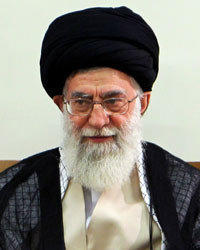
Supreme Leader Ayatollah Ali Khamenei, who will lead the host delegation, has intensified regional tensions in the Middle East in recent days with his warnings that Israel will “cease to exist.” His veiled threats against the Jewish state echo those of Iranian President Mahmoud Ahmadinejad, who has forecast the annihilation of Israel and called the Holocaust a “myth.”
Iran may use the summit to drum up support from among like-minded nations for its proclaimed right to enrich uranium for nuclear energy development. It can also wear down foreign impressions that the United States has succeeded in isolating the Tehran regime with the attendance of dozens of foreign leaders.
North Korea: Kim Yong Nam, president of the Supreme People’s Assembly

Initial reports that the new leader of the hermetic Communist state, Kim Jong-un, would attend the summit were later denied by Iran’s Islamic Republic News Agency. North Korea’s state-run Korean Central News Agency reported Thursday that Pyongyang will be represented by Kim Yong Nam, the 84-year-old president of the Supreme People’s Assembly who has attended previous Nonaligned Movement summits, the most recent in 2009 in Cairo.
North Korea and Iran are suspected of collaborating in some aspects of their nuclear development programs, both subject to U.N. sanctions and resolutions aimed to deterring weapons development.
Afghanistan: President Hamid Karzai
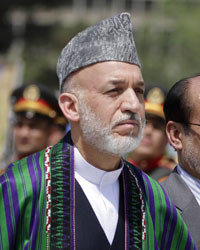
President Hamid Karzai is reported to be among the member states attending the summit. Ties with Iran are strained by conflicts and power struggles in Afghanistan’s Farsi-speaking provinces and Karzai’s government opposes Iran’s reported ambitions of getting nuclear weapons. But the Karzai government’s relationship with Washington is also confronted with new pressures as U.S. and Western troops prepare to withdraw from the country, which could leave Afghanistan vulnerable to a resurgent Taliban supported by fellow nonaligned member Pakistan.
Venezuela: President Hugo Chavez
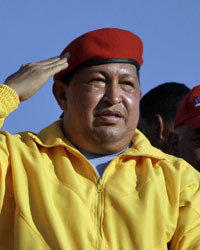
President Hugo Chavez has made prominent use of the nonaligned stage during his decade as revolutionary head of state, denouncing what he sees as U.S. intrigues and efforts to topple his leftist regime. A close ally of fellow nonaligned member Cuba, Chavez has been traveling frequently to Havana for cancer treatment, which has given rise to speculation about his health and longevity prospects. His attendance at the Tehran summit gives summit-goers a rare up-close look at the erstwhile strongman.
Sudan: President Omar Hassan Ahmed Bashir
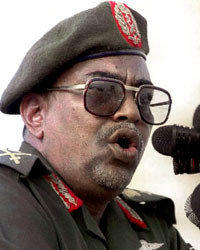
President Omar Hassan Ahmed Bashir has been engaged in a seething conflict over control of a disputed oil-producing area with now independent South Sudan in the year since the rebel region separated from the north. As the United States has been more supportive of the south, Bashir could garner support from nonaligned allies at the summit, perhaps in exchange for coming to Iran’s side in its argument with the West over nuclear developments.
Zimbabwe: President Robert Mugabe
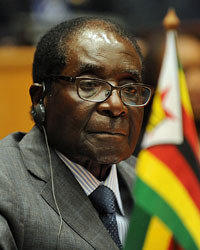
President Robert Mugabe, 88 and known to be ailing, was reported by the Tehran Times to be among the nonaligned leaders planning to attend the summit. As one of Africa’s key leaders of the liberation movement against white-minority rule, he would be in sympathetic company with fellow members Angola, Uganda, South Africa and other sub-Saharan states. Mugabe has been harshly criticized by the United States and other Western nations for corruption, human rights abuses and populist aggressions against white farmers and political opponents.
Tunisia: Foreign Minister Rafik Abdessalem

Foreign Minister Rafik Abdessalem will represent the first country to overthrow a long-serving autocratic regime during the Arab Spring uprisings last year. Tunisia has been drifting toward a more fundamentalist and public practice of Islam since the revolution drove out President Zine el Abidine ben Ali and hobbled the more secular opposition groups. In closer spiritual alignment with Iran now, Tunisia nonetheless retains close economic ties with Europe and is unlikely to be receptive to Tehran’s complaints of Western bullying and abuse.
Azerbaijan: President Ilham Aliyev

President Ilham Aliyev, accused of repressive tactics against opponents and condoning corruption in his oil-rich state, will represent the former Soviet republic at the summit in neighboring Iran. With lingering distrust of Iran over resource disputes and of Russia after decades of economic domination and religious repression, Azerbaijan’s leader will likely hew to his allegiances with the United States and European countries that are deeply invested in the Caspian Sea nation’s oil industry. He could find regional allies, however, from the member states still staving off pro-democracy movements.
Egypt: President Mohamed Morsi

The Tehran summit could serve as a coming-out party for President Mohamed Morsi, the Muslim Brotherhood activist who emerged this spring as Egypt’s first freely elected leader and has quickly maneuvered to ease the military’s grip on the levers of power. Egypt has held the rotating chairmanship of the Nonaligned Movement for the past three years and Morsi will ceremonially hand over the alliance helm to Iran at the summit. Despite Egypt’s founding role in the movement, its relations with Iran are troubled and Morsi is unlikely to bestow any support for Tehran’s claim to a sovereign right to pursue nuclear capabilities.
Libya: Foreign Minister Ashour Bin Khayal
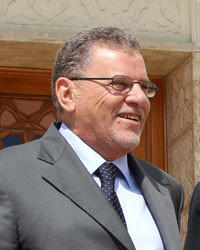
Foreign Minister Ashour Bin Khayal is another regional leader making his debut in the alliance, representing the first elected government after the 42-year tyrranical reign of the late Moammar Kadafi. Middle East analysts will be watching to see how the newly democratized nation’s leadership interacts with the region’s other leaders and movements.
South Africa: Foreign Minister Maite Nkoana-Mashabane
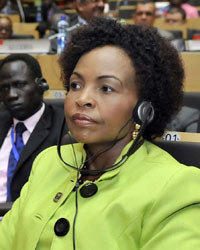
Foreign Minister Maite Nkoana-Mashabane will lead the delegation from South Africa, one of the nonaligned movement stalwarts under former President Nelson Mandela. But South Africa is also one of the most changed states of the alliance, with explosive economic growth and a vibrant global network of trade and cultural ties. Nkoana-Mashabane’s attendance is probably more a bow to tradition than an indication of support for the Tehran regime.
Lebanon: President Michel Suleiman
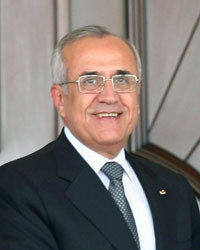
President Michel Suleiman will represent Lebanon, which has suffered from spillover turmoil from the civil war in neighboring Syria, where embattled President Bashar Assad is closely allied with Iran. As with most states in the Middle East, Lebanon is unlikely to show support for Iran’s nuclear ambitions despite its perceived vulnerability to weapons now in Israel’s possession.
India: Prime Minister Manmohan Singh

Prime Minister Manmohan Singh will represent the most populous state in the nonaligned ranks. While India has strong economic ties with the United States and other Western countries, it also has important commercial links with Iran and political analysts will be watching for any sign of India becoming more complacent about the sanctions imposed on Iran.
Australia: U.N. Ambassador Gary Quinlan
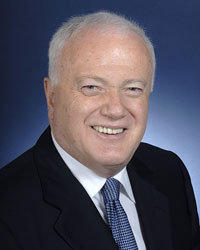
While Australia isn’t a member of the Nonaligned Movement, it will send an observer delegation as guests of the summit including U.N. Ambassador Gary Quinlan. Canberra retains diplomatic relations with Iran as well as concerns over its nuclear programs, and the diplomats are reportedly under orders to walk out of the summit if Iranian leaders use the forum to denounce Israel or make anti-Semitic statements.
United Nations: Secretary-General Ban Ki-moon
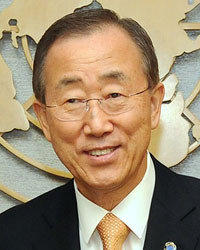
Secretary General Ban Ki-moon plans to raise the international community’s concerns about Iranian nuclear development activities, human rights abuses and bellicose threats against Israel, his spokesman said. While the United Nations has imposed sanctions on Iran and criticized its refusal to open its nuclear sites to international inspection, to refuse attendance at the nonaligned summit would be a “missed opportunity” to work toward resolving the issues threatening the already unstable Middle East region, Ban said. Israel has vowed to bomb Iran’s nuclear facilities if it senses that Tehran is making progress toward weapons development, or hardening its nuclear plants against a missile strike.



















